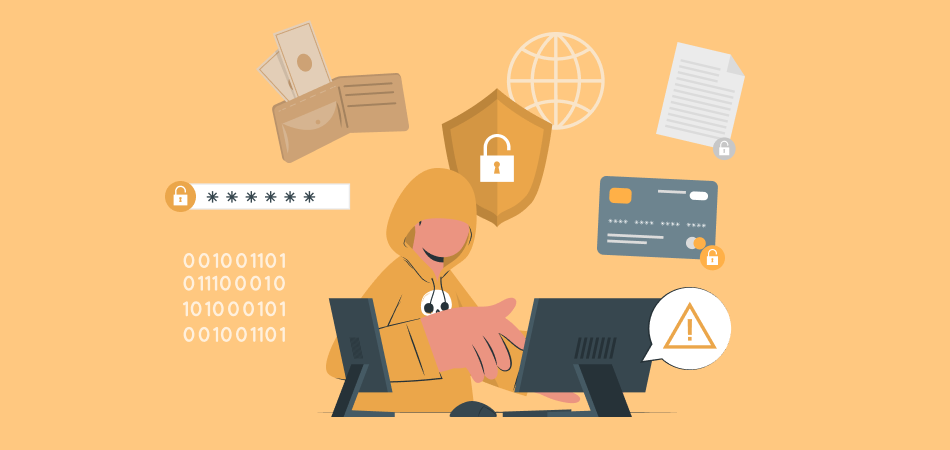Understanding Financial Fraud and Financial Risk for Dropshippers

In the world of dropshipping, navigating financial complexities is crucial for sustained success. Two critical concepts to grasp are financial fraud and financial risk. While they might seem related, they are fundamentally different and require distinct strategies to address.
This article will delve into these concepts, provide examples, and offer practical solutions for dropshippers.
Financial Fraud: Definition and Examples
Financial fraud involves deliberate deception to secure an unfair or unlawful financial gain. This type of fraud can severely impact dropshippers, leading to significant financial losses and reputational damage. Common forms of financial fraud that dropshippers might encounter include:
1. Credit Card Fraud: This occurs when stolen credit card information is used to make purchases from your store. You end up shipping products without receiving legitimate payment, leading to chargebacks and losses.
2. Identity Theft: Fraudsters might impersonate legitimate customers, using stolen identities to place orders. Once the scam is discovered, the payments are reversed, but the shipped goods are already gone.
3. Supplier Fraud: Unscrupulous suppliers might provide false information about product quality, pricing, or availability, causing financial harm to your business.
Financial Risk: Definition and Examples
Financial risk refers to the uncertainty of financial loss inherent in any business activity. For dropshippers, financial risks can stem from various sources, including market volatility, operational challenges, and economic changes. Key financial risks include:
1. Market Risk: Fluctuations in market demand can lead to inventory issues, either overstocking or stockouts, impacting cash flow and profitability.
2. Credit Risk: If you offer payment terms to customers or work with suppliers on credit, there's a risk they may fail to pay on time or at all.
3. Operational Risk: Problems in your supply chain, such as delays or increased shipping costs, can disrupt your operations and lead to unexpected expenses.
Strategies to Mitigate Financial Fraud
To protect your dropshipping business from financial fraud, consider implementing these strategies:
1. Advanced Fraud Detection Systems: Invest in sophisticated software that can detect unusual purchasing patterns and flag suspicious transactions.
2. Secure Payment Gateways: Use reliable payment processors that offer robust security features like encryption and multi-factor authentication.
3. Supplier Verification: Conduct thorough due diligence before partnering with suppliers. Check reviews, request samples, and verify their business credentials.

|
Find Better Supplier For Products DSers Supplier Optimizer - One click to filter out the most proper suppliers for your products |
Strategies to Mitigate Financial Risk
Managing financial risk involves proactive planning and robust risk management strategies. Here are some approaches:
1. Diversify Your Product Range: Offering a variety of products can reduce dependency on a single market segment, spreading risk across different areas.
2. Maintain Healthy Cash Reserves: Having a financial cushion can help you weather periods of low sales or unexpected expenses.
3. Implement Strong Contracts: Clearly outline terms and conditions with suppliers and customers to minimize disputes and ensure clarity in financial transactions.
Practical Solutions for Dropshippers
When faced with financial fraud or risk, here are some practical steps to take:
1. Regular Audits: Conduct periodic audits of your financial transactions to identify and address any irregularities promptly.
2. Customer Verification: Implement additional verification steps for high-value orders to ensure the legitimacy of the customer.
3. Insurance: Consider obtaining business insurance that covers fraud and other financial risks, providing an additional layer of protection.
Conclusion
Understanding and differentiating between financial fraud and financial risk is essential for dropshippers aiming to safeguard their businesses. While financial fraud involves deliberate deceit leading to unlawful gains, financial risk encompasses the inherent uncertainties of business operations. By implementing robust detection systems, securing payment processes, diversifying product offerings, and maintaining financial reserves, dropshippers can effectively mitigate these challenges. Proactive management and strategic planning are key to thriving in the dynamic world of dropshipping.












 Company
Company
 Why Choose DSers
Why Choose DSers
 Blog
Blog
 Help Center
Help Center




 Live Chat
Live Chat